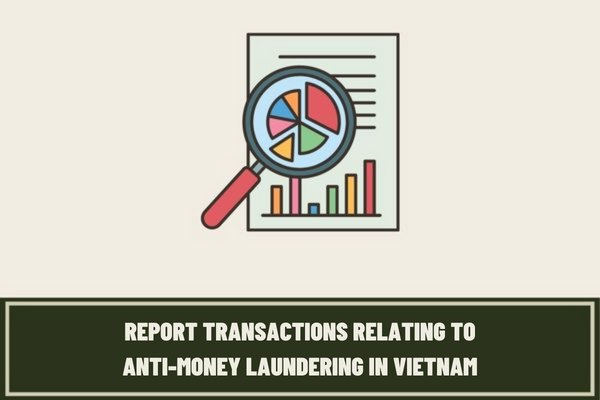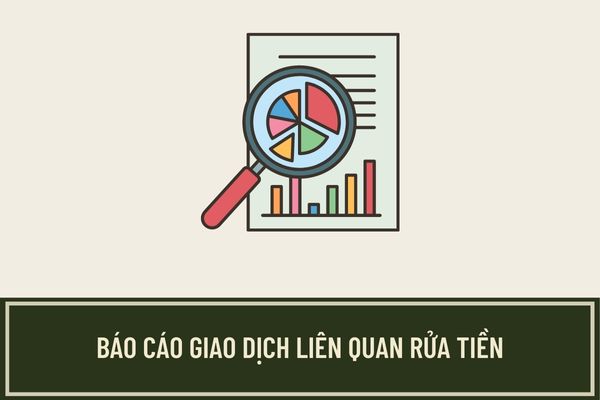Are large and suspicious transactions required to be reported to the State Bank of Vietnam?
Are large transactions required to be reported to the State Bank of Vietnam?
Pursuant to Article 25 of the 2022 Law on Anti-Money Laundering in Vietnam stipulating as follows:
Reporting of Should-be-reporting Large Transactions
1. Reporting entities shall be responsible for reporting to the State Bank of Vietnam when conducting should-be-reported large transactions.
2. The Prime Minister shall decide the range of values of which transactions are classified as should-be-reported large transactions, depending on the socio-economic condition existing over time.
3. The Governor of the State bank of Vietnam shall enact regulations on regimes for reporting of should-be-reported large transactions.
Thus, reporting entities specified in Article 4 of the 2022 Law on Anti-Money Laundering in Vietnam shall be responsible for reporting to the State Bank of Vietnam when conducting should-be-reported large transactions.
- The Prime Minister shall decide the range of values of which transactions are classified as should-be-reported large transactions, depending on the socio-economic condition existing over time.
- The Governor of the State bank of Vietnam shall enact regulations on regimes for reporting of should-be-reported large transactions.

Are large and suspicious transactions required to be reported to the State Bank of Vietnam?
In which case should suspicious transactions be reported to the State Bank of Vietnam?
Pursuant to Article 26 of the 2022 Law on Anti-Money Laundering in Vietnam stipulating as follows:
Reporting of Suspicious Transactions
1. A reporting entity shall be responsible for reporting any suspicious transaction to the State Bank of Vietnam where:
a) it has known that such transaction is conducted at the request of a suspect, defendant or convictee, and has had reasonable grounds to suspect that the property involved in that transaction is owned, or stems from the one owned or controlled by that suspect, defendant or convictee. Determining whether a person is a suspect, defendant or convictee shall be subject to the notices of competent state authorities;
b) there is no plausible ground to suspect that the property involved in a transaction is related to the money laundering offence determined after examining, collecting and analyzing information when the customer or transaction show one or more signs of suspicious activity specified in Article 27, 28, 29, 30, 31, 32 and 33 herein, or otherwise determined by the reporting entity.
2. When detecting any sign of suspicious activity other than those specified in Article 27, 28, 29, 30, 31, 32 and 33 herein, reporting entities, relevant Ministries and central authorities shall be required to notify it to the State Bank of Vietnam.
3. Subject to the anti-money laundering requirements likely to change over time, the State Bank of Vietnam shall seek the Government’s insertion of more signs of suspicious activity specific to sectors or industries other than those specified in Article 27, 28, 29, 30, 31, 32 and 33 herein.
4. The Governor of the State Bank of Vietnam shall enact regulations on regimes for reporting of suspicious transactions.
Thus, a reporting entity shall be responsible for reporting any suspicious transaction to the State Bank of Vietnam where:
- it has known that such transaction is conducted at the request of a suspect, defendant or convictee, and has had reasonable grounds to suspect that the property involved in that transaction is owned, or stems from the one owned or controlled by that suspect, defendant or convictee. Determining whether a person is a suspect, defendant or convictee shall be subject to the notices of competent state authorities;
- there is no plausible ground to suspect that the property involved in a transaction is related to the money laundering offence determined after examining, collecting and analyzing information when the customer or transaction show one or more signs of suspicious activity specified in Article 27, 28, 29, 30, 31, 32 and 33 of the 2022 Law on Anti-Money Laundering in Vietnam, or otherwise determined by the reporting entity.
What contents must be included in the internal rules regarding anti-money laundering?
Pursuant to Clause 1, Article 24 of the 2022 Law on Anti-Money Laundering in Vietnam stipulating as follows:
Institutional reporting entities shall be required to publish internal rules and regulations on anti-money laundering, mainly including:
- Customer acceptance policy that covers stipulations about denial of account opening, establishment of business relationships, conduct of transactions, or termination of business relationship with customers that may be allowed if any reporting entity fails to identify customers due to these customers’ refusal to provide their information or inadequate provision of information;
- Customer identification procedures and processes;
- Risk management policies and procedures that encompass the matters prescribed in clause 1 of Article 16, clause 1 of Article 19 and clause 2 Article 34 of the 2022 Law on Anti-Money Laundering in Vietnam;
- Procedures for reporting of should-be-reported transactions;
- Steps in examining, detecting, handling and reporting suspicious transactions; methods of contact with customers performing suspicious transactions;
- Storage, security and confidentiality of information;
- Application of provisional measures, principles of application of action in case of the postponement of transactions;
- Regimes for reporting or providing information to the State Bank of Vietnam and other competent state authorities;
- Recruitment and training of personnel specializing in anti-money laundering activities;
- Internal control, audit of compliance with policies, regulations, regulatory processes and procedures relating to anti-money laundering activities; responsibilities of each natural person or department for implementation of internal rules and regulations on anti-money laundering.
At the same time, each year, reporting entities shall be required to review their internal anti-money laundering rules and regulations and modify or amend them as appropriate.
LawNet
